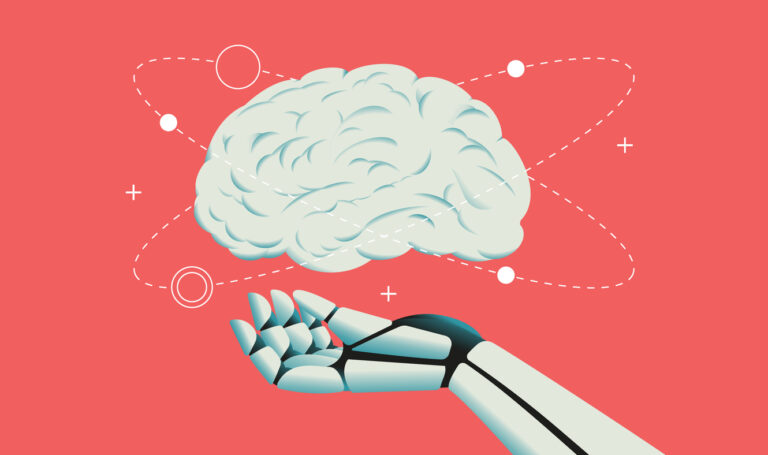Interview with Dr. Eric Leuthardt: Finding the North Star

I’m glad Thomas posted his introduction first because writing about my next interview took longer than I expected.
Hello, readers! I’m happy you’re back on our blog. If this is your first visit, welcome! I hope you enjoy reading and become a regular! If you haven’t checked out our mission statement, please do—it explains why we started this blog and how this post fits into our journey.
Life sometimes surprises you with people who can change your path. I’d read about this happening in biographies or seen it in documentaries, but I hadn’t fully understood it until I recently met people who could have that kind of impact on me.
For me, these individuals include Sam Altman of OpenAI, Dr. Dava Newman at MIT, and Dr. Eric Leuthardt, a neurosurgeon at Washington University School of Medicine in St. Louis. Each meeting shaped my views, however, my meeting with Dr. Leuthardt stands out in a personal way because it inspired me to create this blog, Discover Your Star, where I document my search for my own “North Star” along with my brother, Thomas’s.
How I Came Across Dr. Leuthardt
I first heard about Dr. Leuthardt through a theater play he co-wrote with Dr. Albert Kim, another neurosurgeon. The play, BrainWorks, focused on raising awareness about brain diseases like Alzheimer’s and epilepsy, blending medical facts with dramatic family scenes. One scene depicted how a grandmother’s neurological decline affected her conversations with her granddaughter. I found the combination of art and medicine was cool. The work gained attention, even being featured on PBS.
What really caught my attention, however, was Dr. Leuthardt’s work in creating devices to assist stroke patients in regaining hand movement. This work resonated with me personally because my late grandmother, a doctor for over 60 years, had a stroke while still working, which took away her ability to speak and move. We were close, talking almost every day on Video Chat, and it was heartbreaking when she couldn’t communicate anymore. I wished there was a way to help her express her thoughts.
When I learned about Dr. Leuthardt’s work, I knew I had to meet him. I felt a deep connection to his work, and it made me wonder if medicine, previously unexplored, could be a path for me.
The Meeting
After months of waiting, I finally got the chance to meet Dr. Leuthardt. I was nervous, knowing I was about to talk with a famous neurosurgeon, inventor, and researcher, but I wasn’t expecting just how much our conversation would change the way I think.
Dr. Leuthardt’s biggest piece of advice was to find my “North Star”—something that would guide me for the next 20 to 30 years. He told me about his own journey, starting off without a clear direction and then double-majoring in theology and biology in college. These two seemingly opposite fields shaped his ultimate interest in medicine, computers, and the brain, leading him to pursue neurosurgery in medical school and beyond. He explained that theology isn’t just about the study of religious faith —it teaches you how to think deeply. By combining it with biology, he found his lifelong passion for understanding the brain.
A Practical Way to Find Your North Star
“Okay, I get it,” I thought. But how do I find my own North Star?
When I asked, Dr. Leuthardt suggested studying two different fields in college to develop critical thinking skills. His advice made sense to me because I’ve been interested in the intersection of computer science and the brain, especially after what happened to my grandmother. I’m also thinking about how I could combine engineering and business to create and commercialize medical devices or apps.
But Dr. Leuthardt also warned me that the field of brain-computer interfaces is already being explored by big companies like Facebook and Microsoft. He encouraged me to look for untapped areas in science and to keep up with research by reading scientific journals and news.
Be Patient and Trust in the Process
One of the most important lessons I learned from Dr. Leuthardt is that success takes time and patience. He said it’s like learning to juggle—you start with one ball, and only when you’ve mastered it do you add another. There are no shortcuts.
Dr. Leuthardt is not just a surgeon—he’s also an inventor and an artist. I was surprised to learn that he has written two science fiction novels and enjoys painting. He told me that creativity is important in his work, although finding time for it is getting harder. He also emphasized the importance of teamwork and “Being a people’s person”, saying none of his achievements would have been possible without the support of others, from investors to fellow researchers. You need to improve your interpersonal skills to effectively communicate and collaborate with others.
Looking Ahead
Dr. Leuthardt understood the pressures teens face, like school and preparing for college. He emphasized that amidst the busyness, it’s essential to keep searching for your true calling. Without that “North Star,” it’s easy to drift. This advice really stuck with me, especially because when I met him, I was in my junior year, trying to figure out what to study in college and what my real interests were. My first serious thoughts about my future began around that time.
The meeting served as a reminder that considering college and choosing a field of study is just the beginning of the journey. The bigger challenge is finding a purpose that will guide us through life. I hope that both you and I can make a difference in the world by following in the footsteps of people like Dr. Leuthardt.
OK. That’s it. Thank you for reading through till the end. I understand that this post is lengthy, but I have so many things I want to share with you about the meeting with Dr. Leuthardt and the insights I gained from it. To help you navigate, I highlighted messages and advice that particularly left strong impressions on me in bold letters. I hope that helps.
I have met several inspiring people in the past few years, and I will continue seeking advice to discover my guiding star. I plan to write about these encounters in future posts and beyond. Please come back and check them out!
Let’s keep exploring together!
Best,
Craig







